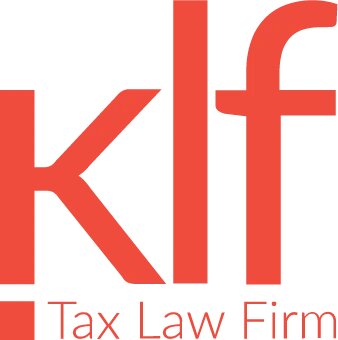Best Communications & Media Law Lawyers in Jerusalem
Share your needs with us, get contacted by law firms.
Free. Takes 2 min.
List of the best lawyers in Jerusalem, Israel
About Communications & Media Law in Jerusalem, Israel
Communications & Media Law in Jerusalem, Israel encompasses various legal areas, including defamation, free speech, copyright issues, broadcasting regulations, and online content. In Jerusalem, this legal field is dynamic and intersects with ethical considerations, freedom of expression, and government regulations. Lawyers specializing in this area ensure compliance with local and international requirements, providing essential guidance to individuals and organizations navigating the complexities of media and communication-related activities.
Why You May Need a Lawyer
There are numerous situations where you might require legal assistance in Communications & Media Law:
Defamation Cases: If you believe you have been defamed or are accused of defaming someone.
Copyright Infringement: For issues related to unauthorized use of copyrighted material or protecting your own creations.
Broadcasting Disputes: Concerning content produced or aired by broadcasting companies or online platforms.
Licensing and Regulatory Compliance: Navigating the regulations for media organizations, including licensing requirements and compliance with broadcasting laws.
Privacy Concerns: Issues involving the invasion of privacy, data protection, and online harassment.
Contractual Agreements: Drafting, reviewing, and negotiating contracts for media productions, publishing deals, and broadcasting rights.
Local Laws Overview
Sensitive to its cultural and political landscape, Jerusalem’s Communications & Media Laws balance freedom of expression with public order and national security. Key aspects include:
Defamation Law: Governed by the Defamation Law of 1965, this law aims to protect individuals from false statements that harm their reputation, while ensuring freedom of speech.
Copyright Law: The Copyright Law of 2007 provides comprehensive guidelines on protecting intellectual property and has been adapted to address challenges posed by digital media.
Broadcasting Regulations: The Israel Broadcasting Authority and other regulatory bodies enforce standards for television and radio broadcasting, ensuring content adheres to legal and ethical norms.
Telecommunications Law: Addresses the operations of telecommunications companies, including licensing, competition, and consumer protections.
Privacy Protection Laws: Govern the collection, use, and storage of private data, which are especially pertinent to online communications and media operations.
Frequently Asked Questions
What is defamation under Israeli law?
Defamation in Israel refers to any false statement that can harm a person's reputation. Legal action can be taken even if the statement was not intentionally harmful.
How is online harassment handled in Jerusalem?
Online harassment is treated seriously, with laws in place to protect individuals from cyberbullying, threats, and the unauthorized sharing of personal information.
Do I need a copyright registration for my creative work in Israel?
No, copyright protection is automatic in Israel, but registration can help in proving ownership and simpler enforcement.
Can I freely share news articles on social media?
While sharing news is generally permitted, consider fair use and copyright laws to avoid infringing on the original content’s rights.
What regulations affect content broadcast on TV in Jerusalem?
Content must meet the standards set by regulatory bodies, including adherence to ethical guidelines and avoidance of prohibited material, such as inappropriate content or incitements to violence.
How can I protect my privacy online?
Ensure compliance with local privacy laws, use strong passwords, and be cautious about sharing personal information. Legal recourse is available for breaches of privacy.
Is a lawyer necessary for drafting media contracts?
Yes, a lawyer can help ensure the terms are favorable and compliant with relevant laws, reducing the risk of future disputes.
What should I do if I'm accused of defamation?
Seek legal advice immediately to understand your rights and potential defenses. It might be necessary to issue a retraction or settlement.
Are there specific laws for advertising in Jerusalem?
Yes, advertising is regulated to prevent misleading claims, ensure truthfulness, and protect consumers, particularly in industries like healthcare and financial services.
Can foreign media operate freely in Jerusalem?
Foreign media can operate, but they must comply with local laws and regulations, including obtaining appropriate licenses and permits.
Additional Resources
Here are some resources and organizations that can assist with Communications & Media Law in Jerusalem:
Ministry of Communications: Oversees the regulation of telecommunications and broadcasting in Israel.
Israel Bar Association: Provides resources and can help you find qualified lawyers specializing in Communications & Media Law.
Israel Broadcasting Authority: Regulates public broadcasting and ensures compliance with broadcasting standards.
Copyright Office of Israel: Offers information and services related to copyright registration and protection.
Data Protection Authority of Israel: Provides guidelines and handles issues related to privacy and data protection.
Next Steps
If you need legal assistance in Communications & Media Law, follow these steps:
Identify Your Needs: Clearly outline the issues you're facing to determine what type of legal help you need.
Research Qualified Lawyers: Look for lawyers with expertise in Communications & Media Law, focusing on their experience in Jerusalem and Israel's legal landscape.
Consultation: Arrange consultations with potential lawyers to discuss your case and understand their approach and fees.
Gather Documentation: Collect all relevant documents and information to provide a comprehensive overview of your case.
Legal Representation: Once you select a lawyer, work closely with them to develop a strategy and pursue your legal objectives effectively.
Lawzana helps you find the best lawyers and law firms in Jerusalem through a curated and pre-screened list of qualified legal professionals. Our platform offers rankings and detailed profiles of attorneys and law firms, allowing you to compare based on practice areas, including Communications & Media Law, experience, and client feedback.
Each profile includes a description of the firm's areas of practice, client reviews, team members and partners, year of establishment, spoken languages, office locations, contact information, social media presence, and any published articles or resources. Most firms on our platform speak English and are experienced in both local and international legal matters.
Get a quote from top-rated law firms in Jerusalem, Israel — quickly, securely, and without unnecessary hassle.
Disclaimer:
The information provided on this page is for general informational purposes only and does not constitute legal advice. While we strive to ensure the accuracy and relevance of the content, legal information may change over time, and interpretations of the law can vary. You should always consult with a qualified legal professional for advice specific to your situation.
We disclaim all liability for actions taken or not taken based on the content of this page. If you believe any information is incorrect or outdated, please contact us, and we will review and update it where appropriate.













